Before joining Tencent, I had never really developed a complete project in C++. However, I was quickly thrown into the deep end, as the people at Tencent particularly enjoy using C++, and they do it exceptionally well. This time, I would like to recommend an open-source C++ project for those who love C++ or want to develop in that direction.
Procedural programming tends to lean towards the lower level, while object-oriented programming is more application-oriented. Don’t argue!

Let’s introduce this C++ open-source project
Project Name: Workflow
Project Address: https://github.com/sogou/workflow


What scenarios is this project suitable for?
This project is the server engine of Sogou, and almost all backend C++ services at Sogou and several other companies are using this engine, processing over a hundred billion requests daily.
Moreover, this project is also very suitable for implementing network framework design in embedded applications. Framework design is a crucial factor for the success of a project, and networking is especially important in AIOT, smart homes, and smart hardware.
For example, if we need to use HTTP in the project, Workflow is designed to support multiple platforms like Windows, Linux, or MacOS through CMake configuration for compiling multiple projects, while maintaining the same interface across different platforms.
If you add a new embedded device, like ESP32, you only need to maintain one set of code for both the server and client to meet your application needs.
It truly achieves the goal of porting cloud technology to run on embedded devices.

Major Features for Embedded Systems
1. Supports Multiple Platforms and Architectures
Multi-platform capability is a very important feature; multi-platform code indicates that many design details have been considered in configuration and coupling. Currently, Workflow can run happily not only on Linux, Windows, MacOS, and Android, but also on Raspberry Pi and domestic Longxin processors among various architectures.
2. Fast Compilation
Workflow does not depend on other libraries except OpenSSL, and there are no templates in the interface layer, thus the compilation speed is very fast, allowing a usable lib to be compiled in less than a minute.
3. Small Size and Support for Compilation Trimming
The Kafka protocol in Workflow is not compiled by default; additionally, other less commonly used modules can be trimmed away.
For example:
make REDIS=n MYSQL=n UPSTREAM=nAnd you can use the strip command to remove symbolic links, reducing the library file size to around 400k.
4. Low Runtime Memory Usage and Fast Scheduling
As an asynchronous scheduling library, Workflow has consistently shown excellent scheduling performance. Additionally, its runtime memory usage is very small.
Memory usage test of the helloworld server service under the tutorial in default configuration
Run the service

Find the process ID

Check memory usage; physical memory usage is at 3824kb
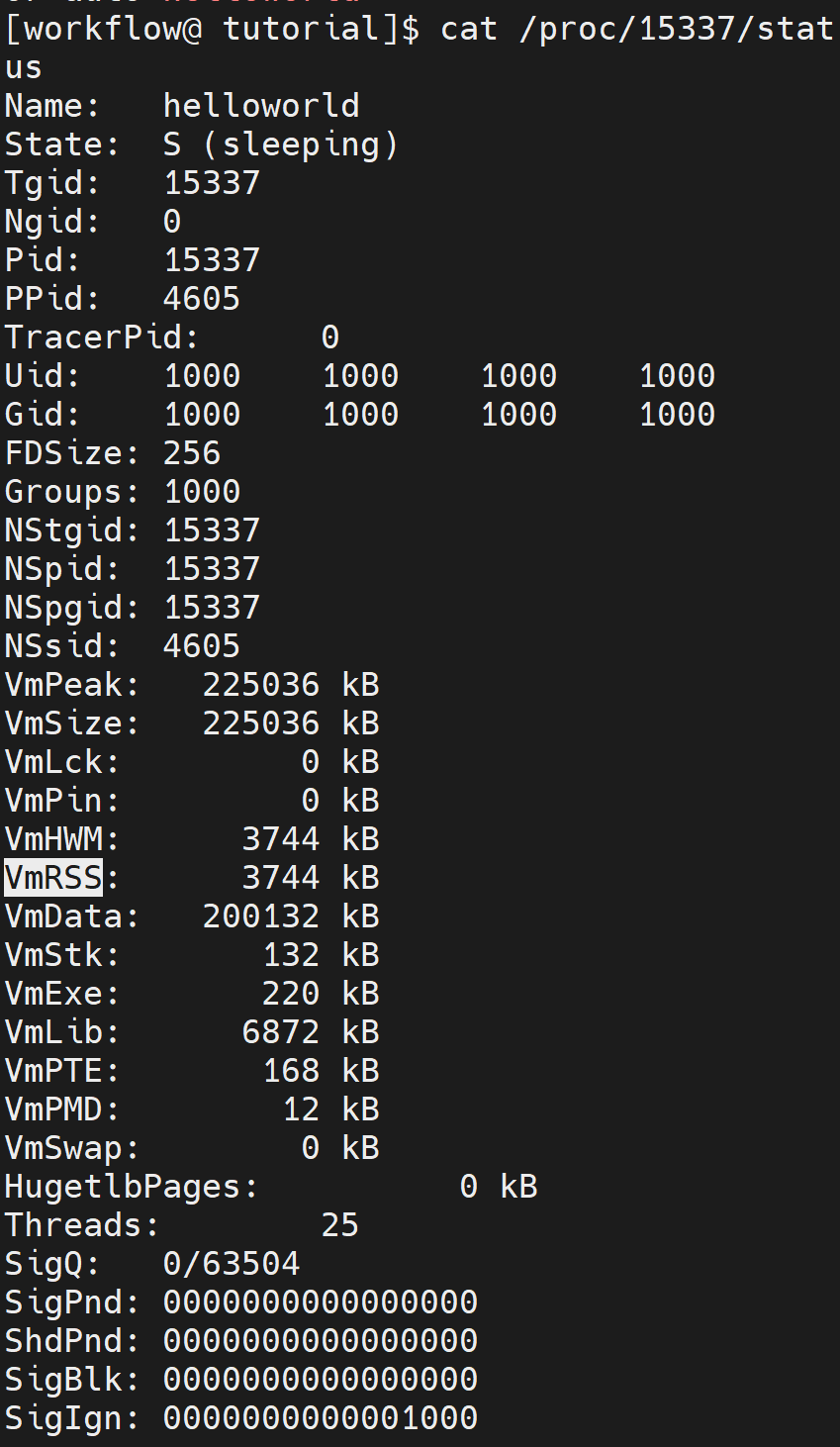
5. Very Convenient Custom Protocols
Additionally, the active community and the project leader’s prompt responses to issues are also highlights. If there are problems in framework construction and porting, asking questions in the community will yield quick responses.


Detailed Discussion on Compilation and Custom Protocols
Open source is probably the main reason I recommend this project. Another reason is that this project is very suitable for use in large embedded projects.
I previously spent a long time on communication protocols during my startup, and if I had discovered this project back then, I believe applying this framework would have made things much easier. This project uses CMake to configure, and I think the CMake documentation I previously shared would also be useful to everyone.
Supplement on Embedded Discussions and Makefile
CMake should indeed be learned when needed.

My startup project involved many clients, and the embedded clients interacted with the server to exchange data. For this reason, we defined our own protocol and implemented many avoidance measures, although these measures had not withstood the test of time.
However, the example of Workflow’s custom protocol is directly provided in the tutorial, and interested friends can download it and
compile a custom protocol server and client with the following commands:
make
cd tutorial
make
./tutorial-10-user_defined_protocol/server
Execute the client in another window to communicate:
./tutorial-10-user_defined_protocol/client
Execution Process:


Open Source Support for Porting to Embedded Devices
It is reported that many users are already using it on embedded systems. I found on GitHub that the officials are particularly patient in explaining when problems arise, which is really great; this is how technology should be!
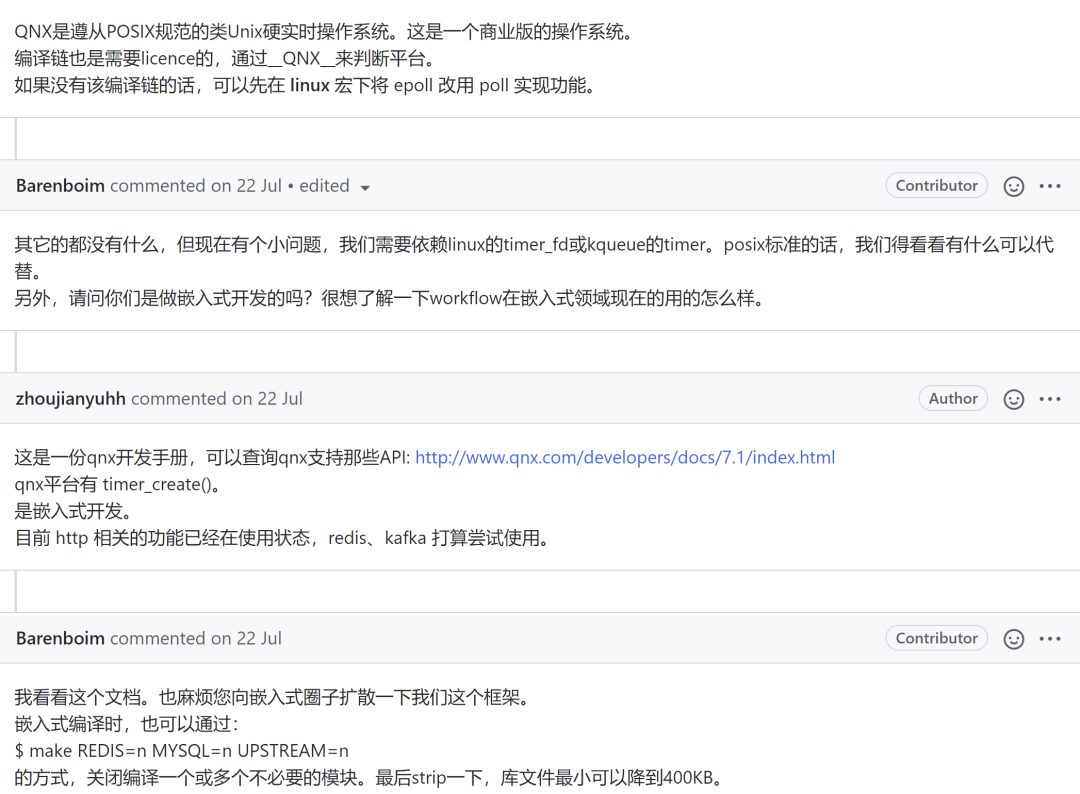

Project Examples
The official examples are quite numerous; I recommend beginners to check them out, as starting with these will help you get into the groove faster.
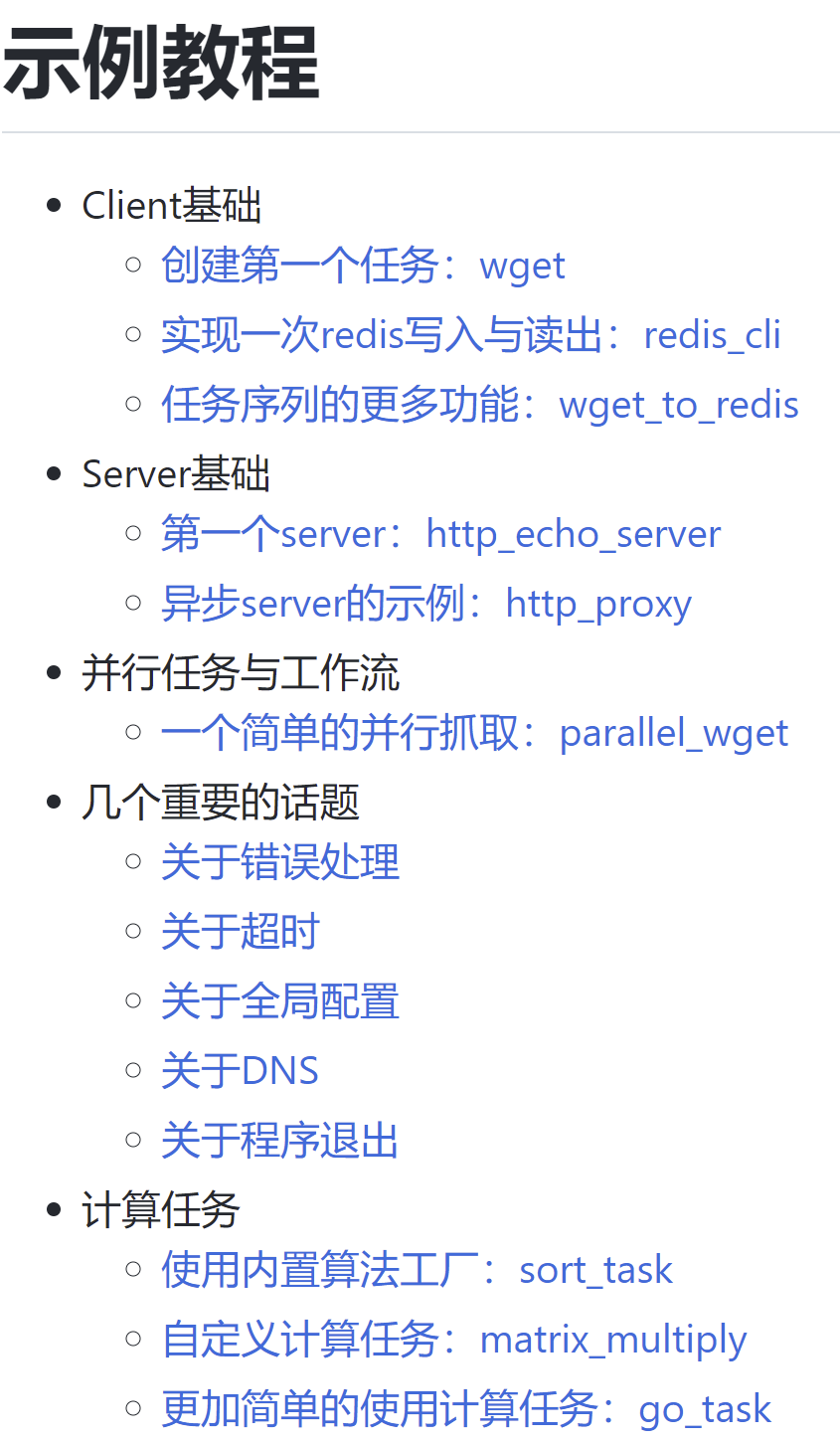
A simple code for Client and Server
Server:
#include <stdio.h>
#include "workflow/WFHttpServer.h"
int main() {
WFHttpServer server([](WFHttpTask *task) {
task->get_resp()->append_output_body("Hello World!");
});
if (server.start(8888) == 0) { // start server on port 8888
getchar(); // press "Enter" to end.
server.stop();
}
return 0;
}
Client:
int main(int argc, char *argv[]) {
WFMySQLTask *task = WFTaskFactory::create_mysql_task(url, RETRY_MAX, mysql_callback);
task->get_req()->set_query("SHOW TABLES;");
task->start();
}

Task Flow Framework Design
In the author’s design philosophy, all business logic is a task, and multiple tasks can form a task flow, which can be organized into a graph. This graph can be a series graph, a parallel graph, or a combination of both, similar to this:
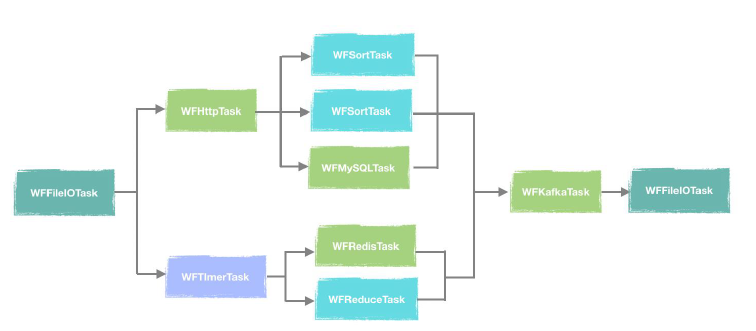
It can also be this complex DAG graph:
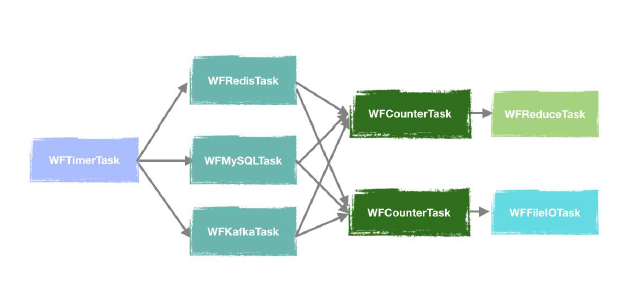
Of course, the hierarchy of the graph can be customized by the user. Personally, I think the most impressive aspect of the framework is its support for dynamically creating task flows.
This project is roughly introduced here.
Let me also mention the project’s resource summary.
Reference Materials:
https://zhuanlan.zhihu.com/p/358869362
https://zhuanlan.zhihu.com/p/165638263
Project Address is as follows:
https://github.com/sogou/workflow You can also clickto read the original text directly.
If you encounter difficulties accessing GitHub, you can use their official Gitee repository:
https://gitee.com/sogou/workflow
If you feel this project is worth learning, give it a star. Don’t just take advantage of it; it’s also a form of recognition and encouragement for the project team.